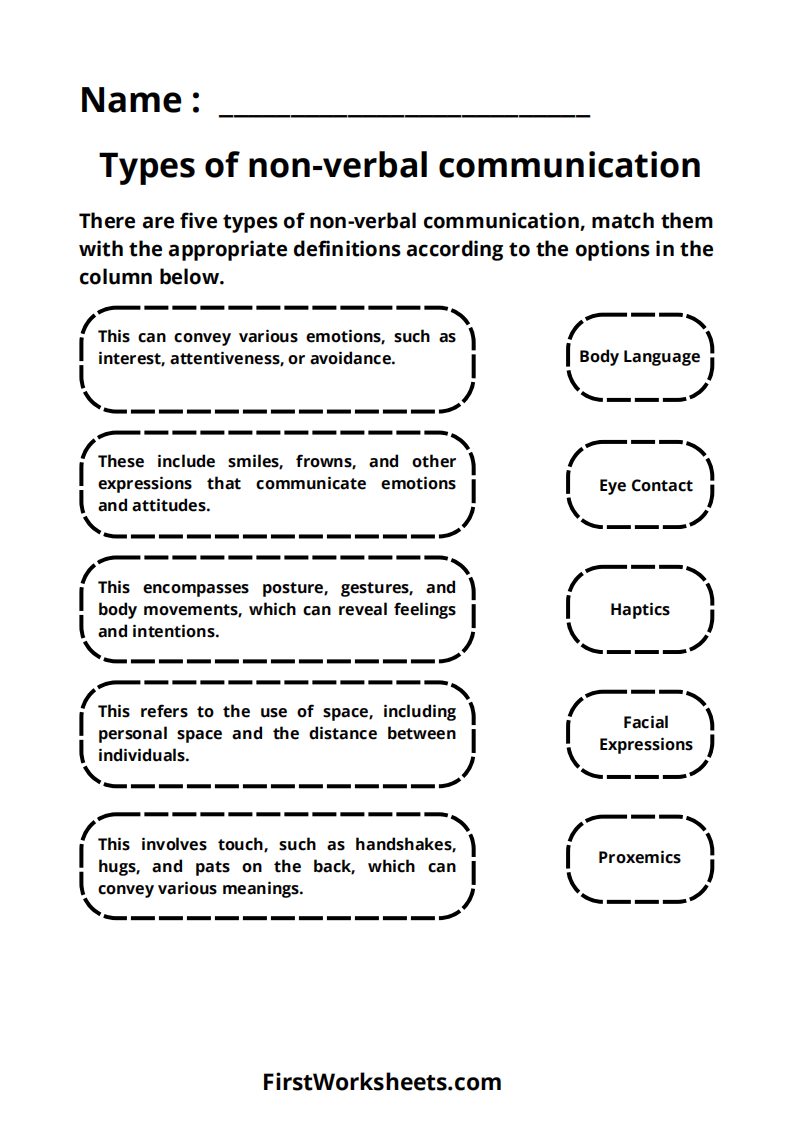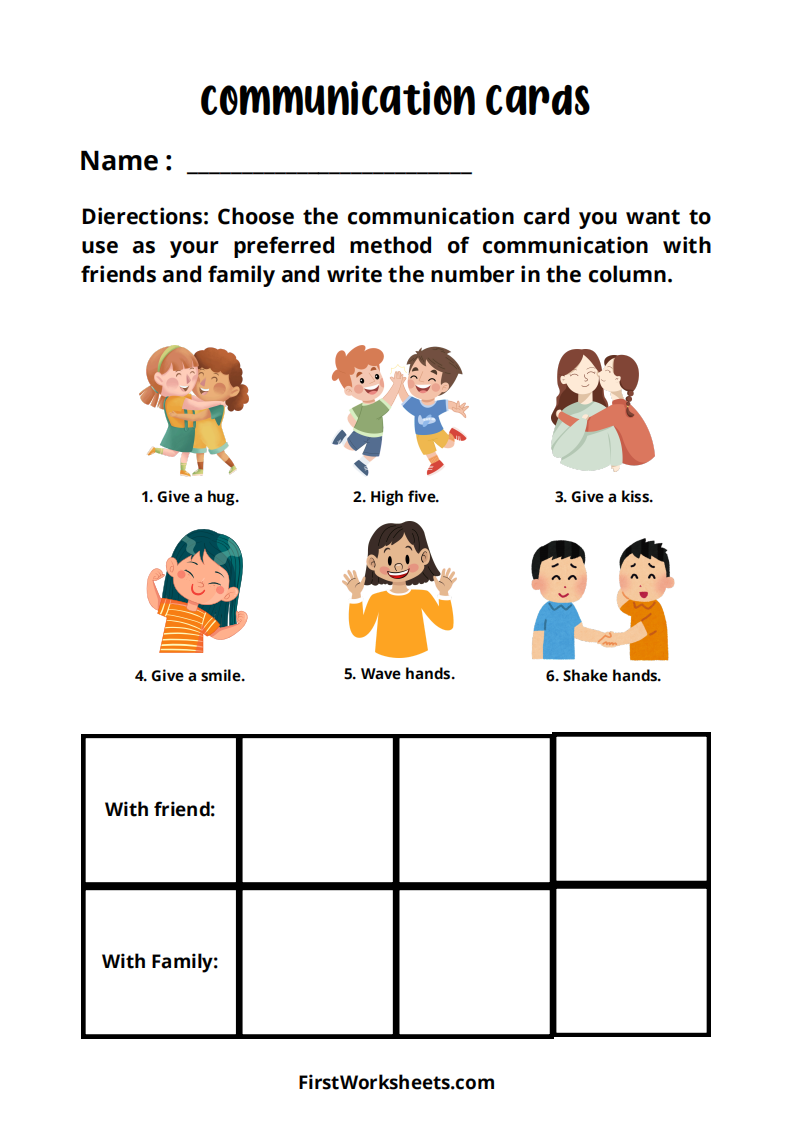Communication Skills Worksheets
Effective communication is a foundational skill that plays a critical role in a child’s social, emotional, and cognitive development. Teaching children how to express themselves, listen to others, and understand non-verbal cues is essential for their success both in school and life. Communication skills worksheets for kids are valuable tools that educators and parents can use to help children develop these abilities in a structured and engaging way.
Why Communication Skills Matter for Kids
Communication skills are not just about speaking clearly or using the right words; they encompass a range of abilities, including listening, understanding body language, and being empathetic. Children who develop strong communication skills early in life tend to perform better academically, have healthier relationships, and exhibit greater self-confidence.
Some of the key areas where communication skills impact a child’s life include:
- Social Interaction: Effective communication helps children build and maintain friendships, work collaboratively with peers, and navigate social situations.
- Emotional Expression: Being able to articulate their feelings helps children manage emotions, reducing frustration and the likelihood of emotional outbursts.
- Problem-Solving: Good communication allows children to express their needs, ask for help when necessary, and negotiate solutions to conflicts.
- Academic Success: Clear communication enhances a child’s ability to understand instructions, participate in classroom discussions, and seek clarification when needed.
Components of Communication Skills Worksheets
Communication skills worksheets for kids are designed to target various aspects of communication, including verbal and non-verbal communication, active listening, and emotional expression. These worksheets are typically structured to be age-appropriate and engaging, using games, role-playing activities, and scenarios that children can relate to.
Here are some of the core components you might find in these worksheets:
- Active Listening Exercises:
- Objective: Teach children how to listen attentively and respond appropriately.
- Activities: These might include listening to short stories or instructions and answering questions, or practicing ‘mirroring,’ where a child repeats what another person has said to confirm understanding.
- Role-Playing Scenarios:
- Objective: Help children practice verbal communication in different social situations.
- Activities: Role-playing games where children act out various scenarios, such as introducing themselves to a new classmate or resolving a disagreement with a friend.
- Non-Verbal Communication:
- Objective: Educate children about the importance of body language, facial expressions, and tone of voice.
- Activities: Worksheets may include matching facial expressions with emotions, interpreting body language in pictures, or practicing how to convey emotions through gestures.
- Vocabulary Building:
- Objective: Expand a child’s vocabulary to improve their ability to express themselves clearly.
- Activities: These worksheets might involve word matching, sentence completion, or story creation using new vocabulary words.
- Emotional Expression and Recognition:
- Objective: Teach children to recognize and express their emotions appropriately.
- Activities: Worksheets could include drawing activities where children depict how they feel, or matching emotions with corresponding situations.
- Problem-Solving and Conflict Resolution:
- Objective: Equip children with the tools to resolve conflicts through effective communication.
- Activities: Scenarios where children must find a solution to a problem by discussing it with others, or worksheets that guide them through the steps of resolving a disagreement.
Benefits of Using Communication Skills Worksheets
Using communication skills worksheets provides a structured way to teach and reinforce these essential skills. The benefits of incorporating these worksheets into a child’s learning routine are numerous:
- Engagement: Worksheets often use games, puzzles, and colorful illustrations, making the learning process fun and engaging for kids.
- Reinforcement: Regular practice helps reinforce the skills being taught, ensuring that children retain and apply what they learn.
- Individualized Learning: Worksheets can be tailored to the child’s age, skill level, and specific areas of need, allowing for personalized learning experiences.
- Practical Application: Many worksheets include real-life scenarios that help children apply what they’ve learned to situations they may encounter daily.
- Parental Involvement: Worksheets provide an opportunity for parents to be actively involved in their child’s learning, creating a collaborative learning environment at home.
Communication skills worksheets for kids are invaluable tools in helping children develop the ability to express themselves, understand others, and navigate social situations effectively. By incorporating these worksheets into a child’s education, parents and educators can lay a strong foundation for their future success, both personally and academically. Whether through active listening exercises, role-playing scenarios, or emotional expression activities, these worksheets provide a structured and enjoyable way for children to learn and grow.








